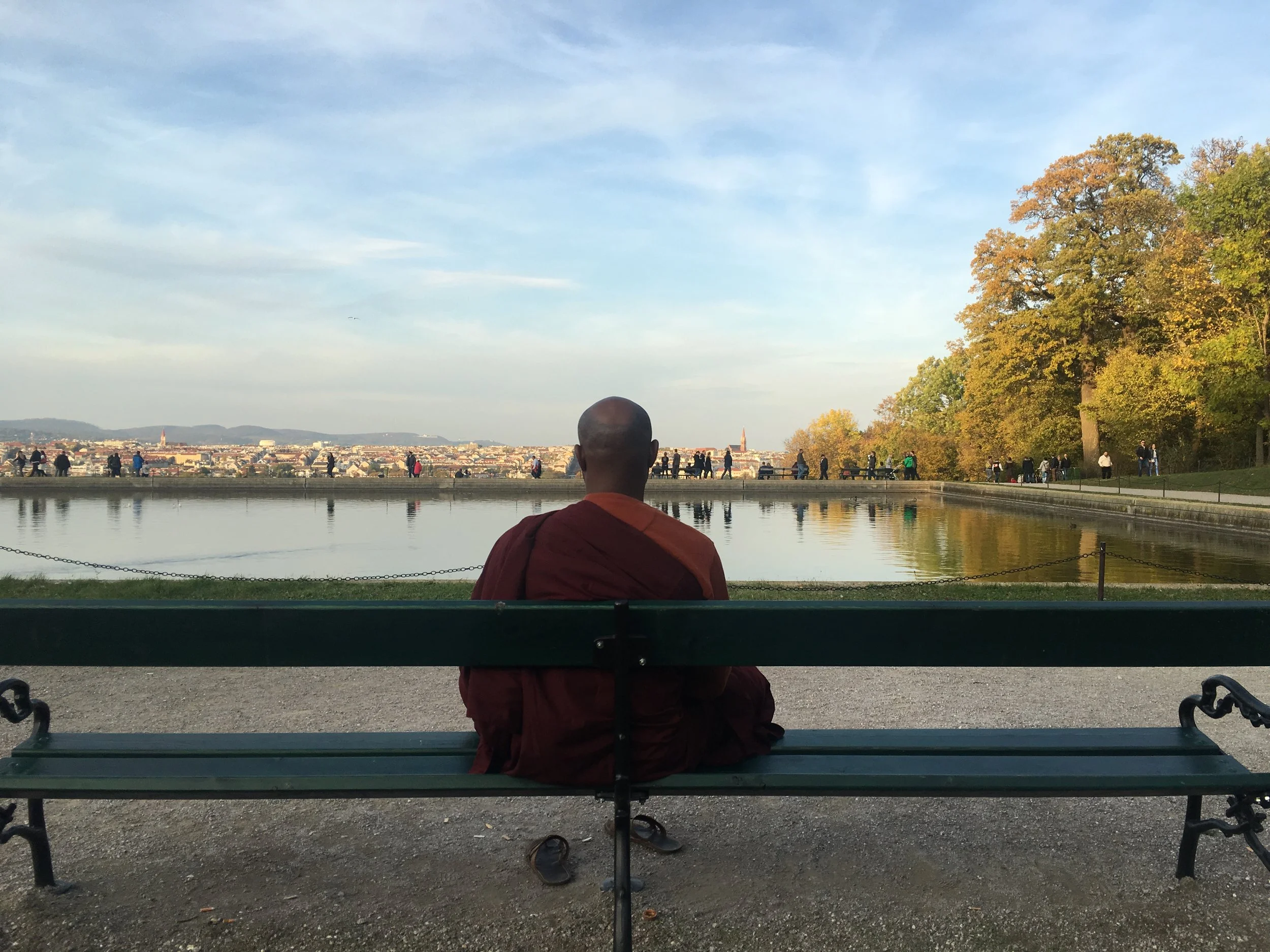Minding Shadows: The Documentary Film Trailer
the story
Olivier was one of the many children torn from their families during the Rwandan genocide. To take revenge, he begins to practice karate, which brings him something he did not expect: tranquility. He founds a meditation group, but the secret police abducts and tortures him. As he remains positive against all odds, the torture room becomes a place where he teaches meditation, leading to his release. Olivier becomes the first Rwandan monk at the Uganda Buddhist Centre, where he takes the name Venerable Sangharakkhita, "Protector of the Sangha." But a conflict with his preceptor forces him to relocate to Sri Lanka, where shifting residency laws render him stateless. Seeking asylum in Europe, he eventually settles in a refugee camp in Germany. After years of waiting Olivier nears citizenship, forging friendships and finding love.
WHAT IS THE STATUS OF the film?
The Minding Shadows creative team has completed filming of Olivier Biraro's story, and is currently in post-production actively seeking support to carry the project forward and champion it to a finish and distribution.
The film’s budget and Use of Funds report, and a 23-minute short form version, are available for interested supporters upon request to jenn@sofarefilms.com.
After completion and a film festival run, this documentary film will be available for digital distribution, and continue to be of interest to community interfaith, intercultural, meditation and mindfulness groups as a discussion piece about the role of healing, inner peace, interreligious peacebuilding and personal growth in dialogue efforts. Accompanied by a mindfulness-based healing course, Minding Shadows offers not only a gripping story but a path for transformation—for individuals, communities, and the world. Moreover, it can be a useful educational tool for classrooms and discussion leaders interested in exploring topics ranging from conflict resolution, the dialogue movement, personal healing and interreligious/intercultural dialogue conducted in the global South. It can be suitable for environments interested in theological, historical, social scientific discussion or for social events as a conversation piece.



